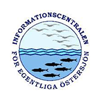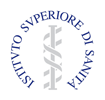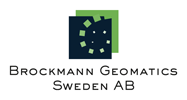Acknowledgements
The development of this service received funding between 2016-2020 from the European Union's Horizon 2020 research and innovation programme under grant agreement No 730141. For more information, please visit the CyanoAlert project website: project.cyanoalert.com
Pilot User Partners
INCDDD - Danube Delta National Institute for Research and Development, Tulcea, Romania
INCDDD is a research autonomous legal entity organization and a non-profit organization having a number of employees smaller than 250, an annual turnover smaller than 50 million euro and the total balance sheet is smaller than 43 million euro. INCDDD carries out basic and applied research to scientifically support the management in the Danube Delta Biosphere Reserve and other wetlands of national and international importance for the biodiversity conservation and sustainable development. The main activity: evaluation of structure and function of the aquatic ecosystems; monitoring of the biological diversity and environmental factors; modelling the processes that are the basis of ecosystem functioning are focused on implementing the international environmental conventions in Romania; consultancy for harmonizing the Romania’s legislation with the EU policy related to environmental protection; strategies for biodiversity conservation and sustainable use of the natural resources (fish, vegetation, game and landscape); assessment and reduction of the human impact; restoration and rehabilitation of the ecosystems that have been injured by the negative human activity. INCDDD has databases with elements of the following issues: cyanobacteria, phytoplankton, chlorophyll a, algal biomass.
InfoBaltic - The Information Office for the Baltic Sea, Stockholm, Sweden
The Information Centre for the Baltic Proper (Infobaltic, IB) is a part of the County Administrative Board (CAB) of Stockholm, which is a Swedish national authority. There are 21 CABs in Sweden. The CAB is a link between people and the municipalities on the one hand, and between the government, parliament and national authorities on the other. It is a coordinating national authority with supervisory responsibilities and also a public service authority. Sweden has three Information Centres, hosted at three different CABs, whose primary purpose is to monitor large-scale events in the marine environment. This may involve, for example algal blooms, oxygen depletion, or cases of larger numbers of dead birds, fish or seals. IB monitors the area from the Åland Sea to the Sound (except the Gulf of Finland and Gulf of Riga). IB receives information from a large number of sampling points included in national and international monitoring programs and they cooperate with more than twenty agencies, research institutions and other organisations/companies that are active in monitoring the Baltic Sea environment, both within and outside Sweden. Annual reports are published and information on on-going events is distributed to the public. IB receives 100-150 requests for information, mainly focused on algal blooms, every year. A majority of the requests comes for media and single statements have shown to have a large spread in local/regional media.
ISS - National Institute of Health, Rome, Italy
ISS conducts scientific research in a wide variety of fields, from cutting-edge molecular and genetic research to population-based studies of risk factors for disease and disability. Research priorities are based on those set forth in the National Health Plan. The Institute is also involved in several major clinical trials, which are frequently conducted in cooperation with the Scientific Institutes for Research and Care (IRCCS) network and Hospitals. Among its activities, it monitors trends in disease, mortality and other health factors and provides technical support for health-related environmental surveys and for investigations of epidemics and other public health problems at national, regional and local level. It also supervises the laboratories engaged in the testing of prohibited substances in sport and the national veterinary institutes. Finally, it has an important role in monitoring and coordinating blood transfusion services and plasma production in Italy. The research group for environmental quality and fish farming (Qualità Ambientale e Ittiocultura, QAI) is part of ISS’ Department for Environment and Primary Prevention (Ambiente e Connessa Prevenzione Primaria, AMPP). It consists of multidisciplinary experts who deal with the health of aquatic ecosystems (natural, artificial and urban), environmental quality and fish farming, through the study of microbiological, chemical and physical, chemical, biological (indicators biological and toxic algae), ecotoxicology, molecular, cartographic (GIS), management and sanitation for the prevention of effects on human and animal health (fish farming) and the health and environmental risk assessment.






